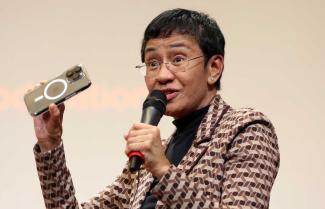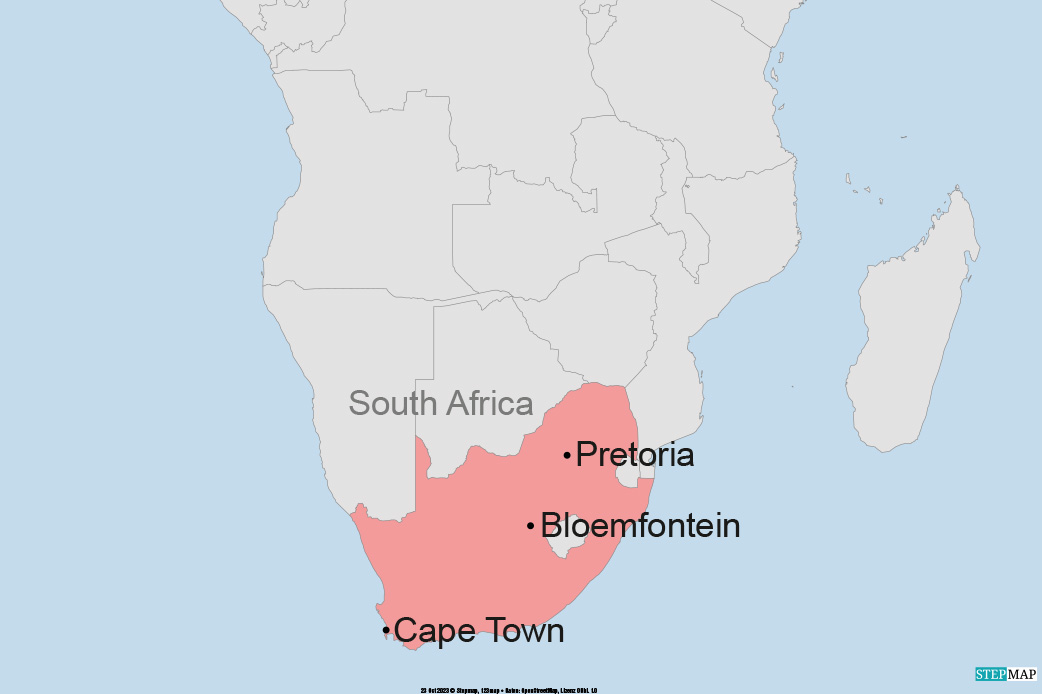Civil-society organisations
Fighting the weaponisation of anti-fake news laws

Disinformation is no longer solely a matter of information control and the manipulation of public perception. Nowadays, even the supposed fight against it is increasingly becoming a tool of repression by powerful government actors. Between 2011 and 2022, 78 governments worldwide introduced misinformation, disinformation and mal-information laws, according to Statista. While these laws were ostensibly designed to counter fake news – we use it here as a broad term for disinformation and other false or misleading information – they have, in many cases, emerged as instruments that illiberal governments use to suppress civil-society critics and political opponents.
Our study on the weaponisation of such legal measures, which we term “Anti-Fake News Lawfare” (AFNL), highlights this alarming trend in South and Southeast Asia. This world region is home to more than 1.6 billion internet users. We drew on archival material, news analysis as well as key informant interviews and documented at least 239 instances of AFNL deployed between 2018 and 2024 in Bangladesh, India, Indonesia, Malaysia, the Philippines and Thailand. Targets included journalists, academics and activists who operate and express opinions in digital spaces.
Patterns of Anti-Fake News Lawfare
Our research revealed several key patterns in the use of AFNL across the region:
- Fake-news laws are often vaguely worded. This allows government actors wide discretion to redefine disinformation to include criticism against and opposition to the government. Dissent is, therefore, criminalised as “disinformation”, which supposedly threatens government stability, public order and national security.
- Consequently, AFNL is often implemented in conjunction with criminal and security laws, particularly by security forces.
- Dissidents face multiple serious charges, forcing them to spend their limited time, energy and resources on long-drawn legal battles.
- The majority of cases involve posts on Facebook, followed by YouTube and X (formerly Twitter). Social-media platforms, which many consider central for political expression and democratic participation, have ironically become sites
of repression. - The enforcement of AFNL is highly partisan. Government supporters accused of disseminating disinformation online are often shielded, while critics face harsh penalties.
- Governments’ weaponisation of fake-news laws surged during the Covid-19 pandemic, as authorities increasingly invoked them to intimidate those questioning their preparedness and policies. Governments invoked emergency powers during the pandemic to use AFNL to monitor the expression of opinions.
- AFNL has increased governments’ influence over tech platforms. In major markets such as India and Indonesia, governments have pressured companies to share user data and remove content under regulations such as India’s IT Rules, 2021 and Indonesia’s Ministerial Regulation 5. They have managed to significantly tilt the digital playing field in their favour.
Strategies against Anti-Fake News Lawfare
Despite these worrying trends, our research shows that resistance among civil-society actors is growing. Various strategies have proven effective against AFNL; they include legal action, advocacy, resource mobilisation, capacity-building and public outreach, as well as cross-border engagement with policymakers and allies. These strategies share a core understanding: Countering AFNL requires tackling the legal, social and economic “costs” that deter civil-society actors from holding governments to account.
Short-term responses to AFNL include extending pro-bono legal support to targeted activists, journalists and organisations. Networks of human-rights lawyers have played crucial roles in their respective countries and are increasingly seeking to expand collaboration across the region. They include Thai Lawyers for Human Rights, the Indonesian Legal Aid Institute, Lawyers for Liberty of Malaysia, the Free Legal Assistance Group of the Philippines and the Centre for Social Justice of India.
Moreover, lawyers and rights advocates in Asia collaborate to leverage the prosecutorial and judicial procedures specific to their country. In places with a certain degree of judicial independence, such as India and the Philippines, defence lawyers aim to secure case dismissals at the prosecutorial stage to avoid costly and prolonged trials. This strategy has proven beneficial for under-resourced journalists and activists in particular.
Complementing legal efforts, various groups have raised funds to support individuals targeted by Anti-Fake News Lawfare. Organised fundraising improves the groups’ ability to manage funds for bail, legal fees and other trial-related expenses, helping to alleviate the financial burden of prolonged legal battles.
Drawing public attention
Beyond the courtroom, activists and journalists have deployed innovative tactics to draw public attention and create political backlash against AFNL. For instance, in the Philippines, journalist and Nobel Peace Prize laureate Maria Ressa leveraged her “reputational capital” to rally domestic and international support, transforming legal intimidation into a campaign against AFNL.
Strategic litigation and constitutional challenges have also proven effective. In India, for example, the Supreme Court halted the formation of a fact-checking unit by the government in March 2024 after petitions by the Editors Guild of India and comedian Kunal Kamra argued it infringed on free speech and press freedom. The Court warned that government fact-checking units may have a chilling effect on dissent.
In Indonesia, an article of the Criminal Code and two articles of Law No. 1/1946 on Criminal Law Regulation – all related to false information – were declared unconstitutional by the Constitutional Court in 2024. In Malaysia, the notorious 2018 Anti-Fake News Act was repealed after opposition parties won the general elections in the same year. In early 2025, Malaysia’s lower house passed a bill to establish the Malaysian Media Council – an independent body consisting of 21 representatives from media companies, media associations and other stakeholders. The Council is seen as a major step toward reforming the legal framework for freedom of expression and the media. Similarly, persistent civil-society campaigns in the Philippines pushed the lower and upper house representatives to introduce bills decriminalising cyber libel in 2022, followed by a Supreme Court ordinance in 2023 supporting decriminalisation.
Alternatives to restrictive legislation
Countering AFNL requires civic alternatives to restrictive legislation. Fact-checking organisations like Cofacts in Thailand, AltNews in India, BD Fact-Check in Bangladesh or JomCheck in Malaysia contribute to this end by combating disinformation and advancing information literacy. These efforts are being bolstered by researchers and civil-society activists who analyse biased law enforcement and content manipulation. Thanks to their work, more comprehensive strategies to protect information integrity are emerging.
Ultimately, in South and Southeast Asia, civil-society actors are positioned between illiberal governments and powerful tech companies. While they are benefiting from heightened public awareness of digital repression tactics, they urgently require more domestic and international support to safeguard information pluralism and strengthen democratic institutions.
Link
German Institute for Global and Area Studies (GIGA):
Anti-Fake News Lawfare (AFNL).
fakenewslawfare.com
Sangeeta Mahapatra is a research fellow at the Institute for Asian Studies of the German Institute for Global and Area Studies (GIGA).
sangeeta.mahapatra@giga-hamburg.de
Janjira Sombatpoonsiri is a research fellow at the GIGA Institute for Asian Studies.
janjira.sombatpoonsiri@giga-hamburg.de
Andreas Ufen is a senior research fellow at GIGA.
andreas.ufen@giga-hamburg.de














